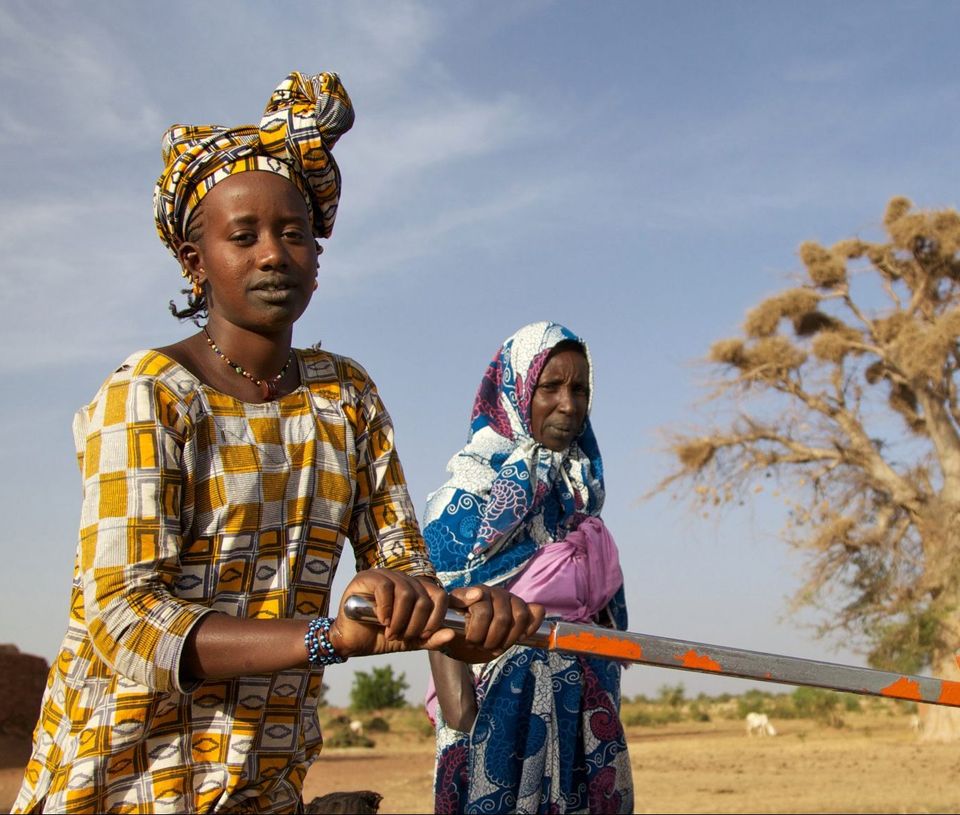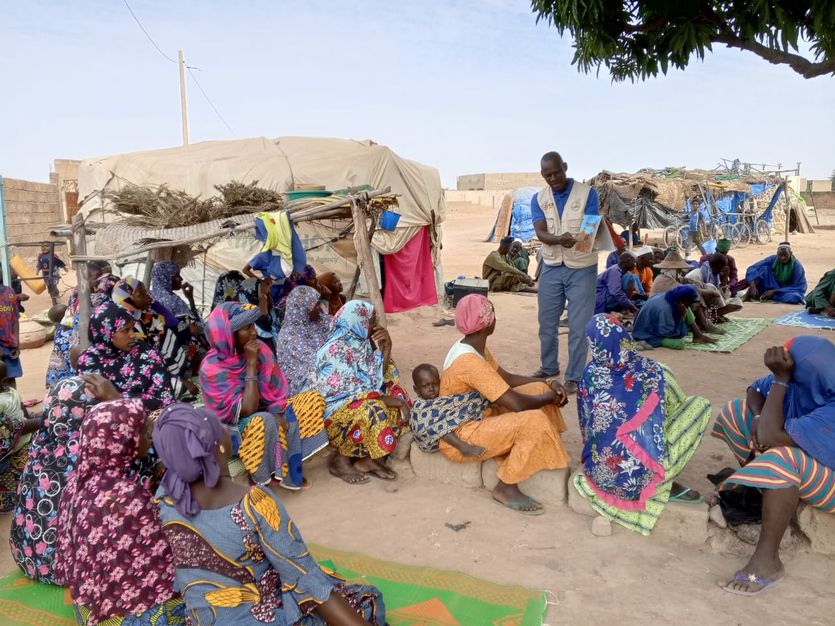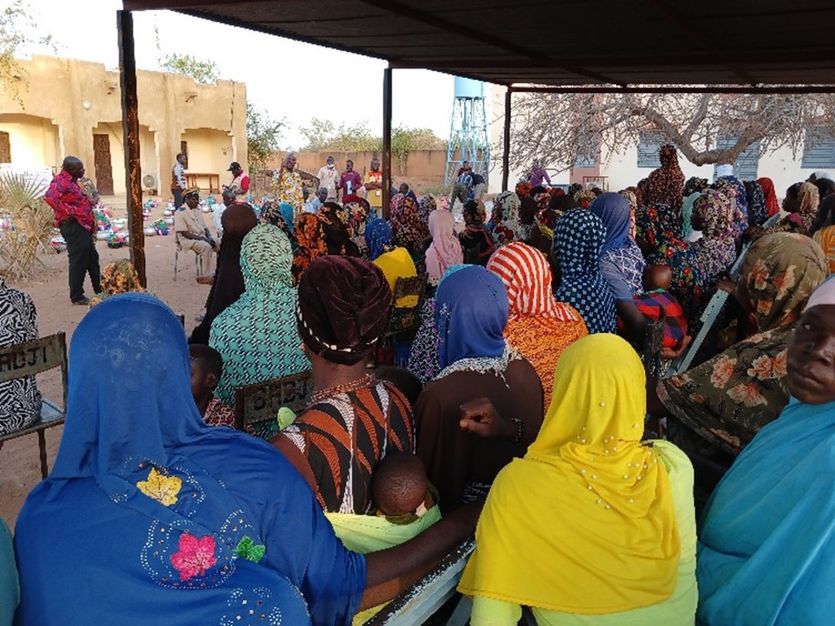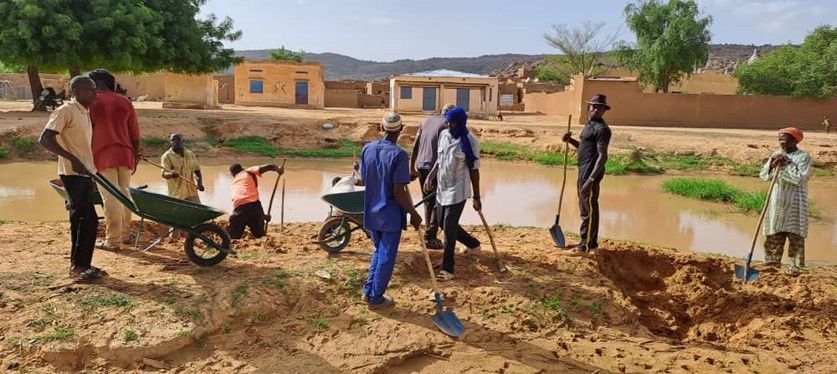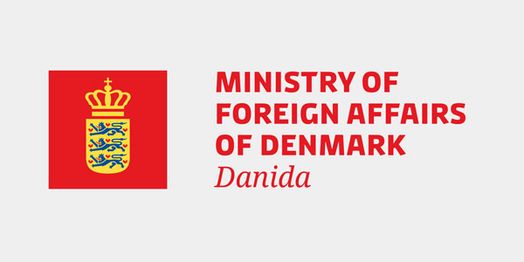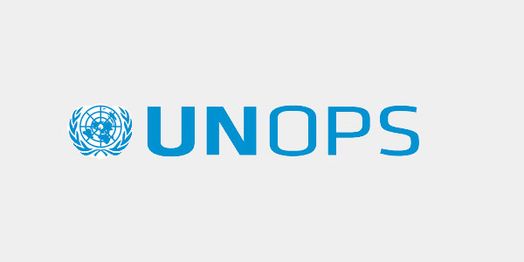Main activities
Humanitarian Mine Action
DCA Mali’s Humanitarian Mine Action (HMA) work seeks to build the capacities of national NGOs to implement HMA activities in Central Mali, where most of the explosive ordnance (including Improvised Explosive Devices ‘IEDs’ and Explosive Remnants of War ‘ERW’) related incidents take place and where the proliferation of small arms and light weapons (SALW) constitutes a major threat to people’s safety, basic rights and socioeconomic development.
DCA’s HMA programming includes the provision of explosive ordnance risk education to children, youth, men and women from both host and displaced communities; the carrying out of non-technical surveys to identify hazardous zones and prevent risks of injury or death; training on first aid to community focal points; emergency assistance (including psychosocial support, coverage of medical bills, and referrals to other available services) to survivors of explosive ordnance and SALW related accidents, as well as individualised support towards their socioeconomic reintegration after their recovery.
Conflict Prevention and Peacebuilding
DCA Mali’s Conflict Prevention and Peacebuilding (CPPB) programming focuses on building the capacities of local community leaders, civil society organisations and, where possible, local authorities, to strengthen and foster networks within and between communities to identify common ground for peaceful coexistence, action planning and access to resources, and in doing so promote community resilience. This includes the provision of training on conflict and gender sensitivity, conflict analysis, conflict prevention, non-violent communication, dialogue facilitation and advocacy.
DCA and its partners use a human rights-based approach to ensure inclusiveness, representation and participation from all community groups throughout these processes, with a particular focus on youth, women and vulnerable groups to ensure that they are informed, empowered and active participants in local peace efforts and decision-making instances.
Food Security and Livelihoods
As a member of the Rapid Response Mechanism (RRM) in Central Mali, DCA supports 2 local humanitarian monitoring committees who provide swift information or ‘alerts’ on crises unfolding in their zones, including population displacements, undertakes rapid multisectoral evaluations in collaboration with other humanitarian organisations and provides unconditional cash transfers to vulnerable IDP and host community households to overcome food insecurity particularly in the lean seasons, which are worsening due to the effects of climate change.
In this context, DCA and its partners support the development of sustainable and resilient agropastoral livelihoods and businesses, particularly targeting youth and women to foster their economic empowerment. This notably includes the provision of training on climate change adaptation techniques, natural resource management, as well as the development or rehabilitation of community infrastructure, such as food granaries, irrigation canals or plots of land.
CURRENT PROJECTS
DCA Mali in numbers (2021)
4 local partners
6 offices (Bamako, Sevare, Bankass, Djenne, Douentza and Niafunke)
20 local peace committees established, trained and supported
25,000 beneficiaries reached (approximately 40% women, 60% men)
2 ,000,000 turnover in 2021 (USD)
- DCA Mali Fact Sheet (PDF)
- DCA Fact Sheet (PDF)
Learn more about DCA in Mali
Donors
DCA operations in Mali are supported by Danida and UNOPS (UNMAS).
Contact DanChurchAid in Mali
Bamako Office
Rue 125, porte 82
Badalabougou Bamako
Mali
Phone: +223 79 62 45 14
Country Director
Souleymane Djanken Toure
Mail: sodto@dca.dk

